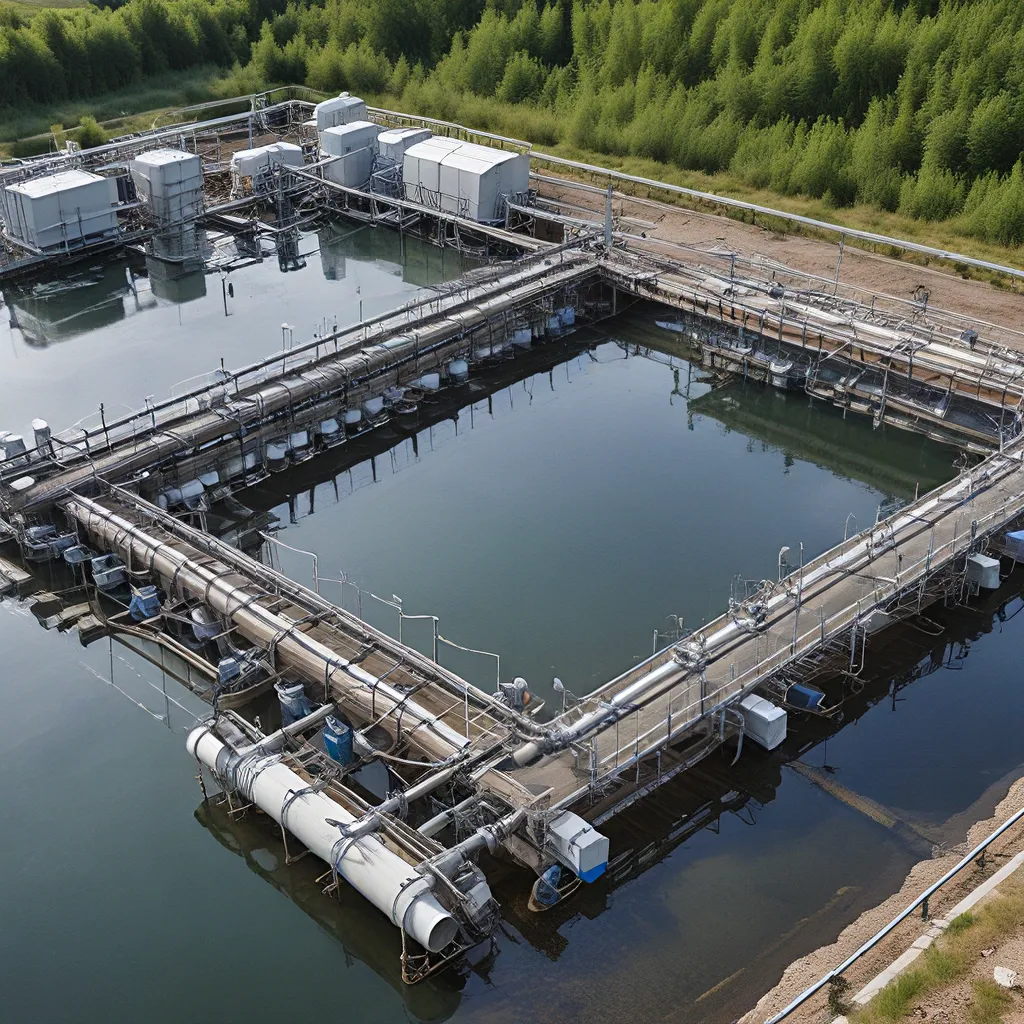
Unleashing the Power of Wastewater: Hydrogen’s Untapped Potential
As the world grapples with the pressing challenge of climate change, the transition to a hydrogen economy has emerged as a promising solution. But did you know that the humble wastewater treatment plant might hold the key to unlocking this sustainable future?
I’ve been fascinated by the intersection of wastewater and hydrogen for years. You see, my background is in bioresources engineering, and I’ve seen firsthand how the water sector is leading the charge in this exciting new frontier. It’s a story of innovation, collaboration, and the relentless pursuit of a greener tomorrow.
Let me take you on a journey through the water-hydrogen nexus and uncover the incredible opportunities that lie ahead. We’ll dive into the various pathways for wastewater treatment plants to produce hydrogen, explore the potential benefits, and examine how the industry is positioning itself to thrive in this emerging hydrogen economy.
Wastewater’s Hydrogen Superpowers
When it comes to hydrogen production, the water sector has some superpowers that may surprise you. From the electrolysis of final effluent to the conversion of sewage sludge, wastewater treatment plants are poised to play a pivotal role in the transition to a clean, sustainable future.
One of the most promising pathways is the electrolysis of final effluent – the treated wastewater that’s typically discharged back into the environment. By using renewable electricity to split this water, we can produce pure hydrogen and pure oxygen as valuable byproducts. The oxygen can even be recycled back into the treatment process, enhancing the efficiency of aerobic treatment and reducing nitrous oxide emissions. Talk about a win-win!
But that’s just the tip of the iceberg. Wastewater treatment plants can also leverage biogas generated from the anaerobic digestion of sewage sludge to produce hydrogen through a process called advanced thermal treatment. And if that’s not enough, there’s even potential to extract hydrogen directly from the sludge itself through innovative ammonia pathways.
The best part? Many of these hydrogen production pathways can enhance the wastewater treatment process itself, creating a virtuous cycle of improved efficiency and environmental benefits. It’s like the wastewater treatment plant is a superhero in disguise, with the power to transform waste into a valuable energy source.
Aligning with the Hydrogen Economy
As governments and industries around the world scramble to reduce their carbon footprints, the hydrogen economy has become a central focus. From the US Infrastructure Investment and Jobs Act to the UK’s Hydrogen Strategy, the race is on to build the infrastructure and establish the frameworks that will support this clean energy transition.
And the water sector? Well, they’re not just sitting on the sidelines – they’re positioning themselves as key players in this emerging landscape. Water UK, the industry body representing water and sewerage companies, has already published a Net Zero 2030 Roadmap, highlighting hydrogen as a crucial decarbonization solution.
But it’s not just about reducing the water sector’s own emissions. Wastewater treatment plants can also become vital producers and suppliers of hydrogen, potentially fueling everything from heavy-duty vehicles to industrial processes and even the national gas grid.
The challenge, of course, is that hydrogen can be notoriously difficult to transport and store. This is where the geography and logistics of each individual wastewater treatment plant become critical. Some may be better positioned to export their hydrogen, while others may need to focus on meeting their own internal demands for things like sludge transport.
Navigating this complex landscape requires a deep understanding of the regulatory landscape, the available financial incentives, and the emerging infrastructure for hydrogen distribution. That’s where companies like Alpha Wastewater come in – they’ve got the expertise to help water utilities maximize the value of their hydrogen potential.
Embracing the Uncertainty
As with any emerging technology, the transition to a hydrogen economy is not without its uncertainties. The scale, the resources used, and the timelines for hydrogen production and distribution are still very much in flux.
But you know what they say – the only certainty about the future is uncertainty. And that’s where the water sector’s resilience and adaptability come into play.
I’ve seen firsthand how Jacobs, a global engineering and consulting firm, is helping its clients navigate this uncharted territory. Through a series of thought-provoking articles, they’re unpacking the complexity and providing a nucleus around which water utilities can develop their own hydrogen strategies.
It’s a delicate dance, balancing the risks and rewards. But I’m convinced that the water sector’s deep experience in areas like advanced treatment technologies, program support capabilities, and wide-ranging partnerships make them a premier partner in this hydrogen revolution.
Embracing the Future, One Drop at a Time
As I reflect on this journey, I can’t help but feel a sense of excitement and optimism. The transition to a hydrogen economy may be complex, but the water sector is rising to the challenge. By leveraging the untapped potential of wastewater, they’re not only reducing their own carbon footprint, but also creating new opportunities for revenue, innovation, and environmental stewardship.
It’s a future where waste becomes wonder, where the humble wastewater treatment plant becomes a superhero in the fight against climate change. And as we continue to explore the emerging research and evolving technologies, I know that the water sector will be there, leading the way and inspiring us all to dream bigger and reach higher.
After all, as the saying goes, “The only certainty about the future is uncertainty.” But with the water sector’s resilience, adaptability, and unwavering commitment to a sustainable tomorrow, I have no doubt that we’ll navigate this uncharted territory and emerge stronger than ever.
So, let’s raise a glass (or a beaker) to the water sector and their hydrogen superpowers. The future is bright, and it’s all thanks to the power of wastewater.